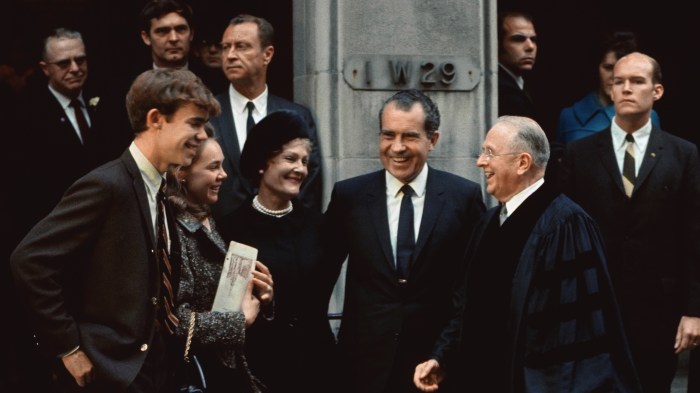Earlier this year, many of us watched replays of the tragic collision and collapse of the Francis Scott Key Bridge in Baltimore, leading to the loss of several lives and causing enormous damage and disruption.
As footage emerged, it was striking to see how immediately and totally the bridge seemed to come down. It looked like it happened all at once. The bridge had been constructed without any redundant support structures. The tragedy revealed that all of its supports were essential. Knock any one of these out and the whole thing will fall.
We might say something similar about Paul’s teaching in 1 Corinthians 6:9–11, one of the key biblical texts that addresses same-sex sexuality. This is not the sole focus of the text—Paul is talking about various sins—but it nevertheless provides essential foundations for how we should approach this whole issue as Christian believers.
In Western (and increasingly non-Western) cultures today, full affirmation of LGBTQ sexual identities and lifestyles is a litmus test of social acceptance. When I was at university in the mid-1990s, Bill Clinton was still affirming marriage as being between a man and a woman. On secular university campuses today, politically conservative voices defending traditional marriage are rare and virulently opposed. The cultural pressure on churches to switch to an affirming stance is increasingly heavy.
In today’s climate, the church cannot afford to neglect Paul’s words. Paul makes five vital points in 1 Corinthians 6 about same-sex sexuality. None of his words are wasted. Each facet of his teaching needs to be upheld alongside the others, like vital supports of a bridge. Neglecting any one will destabilize our approach.
While addressing legal disputes among Christians in 1 Corinthians 6, Paul interjects a stark question: “Do you not know that the unrighteous will not inherit the kingdom of God?” (v. 9, ESV throughout).
The kingdom of God, of course, is God’s loving rule over his people, begun now in Christ and one day coming in its fullness. It is the life we were created for, the world as it was meant to be. It is what millions of people unknowingly crave every time they say life’s “not supposed to be this way.” It’s what we can receive through the death and resurrection of Jesus. Whatever else one might miss out on in life, nothing would be more tragic and devastating than to fail to inherit the kingdom of God. The stakes could not be higher.
Having made a blanket statement about “the unrighteous,” Paul provides some specific examples:
Do not be deceived: neither the sexually immoral, nor idolaters, nor adulterers, nor men who practice homosexuality, nor thieves, nor the greedy, nor drunkards, nor revilers, nor swindlers will inherit the kingdom of God. (vv. 9–10)
The two Greek terms translated here as “men who practice homosexuality” are malakoi and arsenokoitai—literally “soft” or effeminate ones and “men-bedders”—the passive and active willing participants in homosexual sex, respectively. Arsenokoitai is the combining of the two words used in the Greek translation of Leviticus 18:22 and 20:13, passages that both condemn a man lying with a man “as with a woman.”
Paul provides no indication that he is referring only to coerced, nonconsensual same-sex activity (which was common in the ancient world); his language is broad and encompassing of all same-sex sexual conduct. Paul is moving no goalposts, introducing no innovation; he is simply lining up with what Scripture has always said: that same-sex sexual intimacy is sinful. In the New Covenant, God’s design for human sexuality remains the same.
Evangelicals are used to differing over issues of secondary importance. The Bible itself talks about how some topics can be disputable matters, where earnest Christians reach differing conclusions in good conscience (Rom. 14). We think of differing convictions over the details surrounding the return of Christ, whether all the miraculous spiritual gifts are operative in the church today, or the appropriate age for (and mode of) baptism.
Our need to agree to disagree means we can too quickly assume that any issue on which Christians differ must by definition be of secondary importance. But Paul shows us this is not the case with same-sex sexuality.
No sin is trivial because all sin is ultimately rebellion against God (1 John 3:4). But by including same-sex sexuality in this list, Paul shows us how deeply serious a sin it is. Eternity is at stake.
Not only does he stress the eternal implications of failing to repent of this; he also warns his readers not to be deceived about it.
Paul is expecting voices in or around the Corinthian church to preach contrary to what he is writing. We certainly hear many such voices in the church today, claiming not only that it is right to allow same-sex relationships for Christians but even that such relationships receive God’s blessing. But Paul is unequivocal in his message. To bless what God condemns is to keep people from the kingdom—to send them to destruction. Homosexuality is not trivial.
An observant reader of this passage would rightly point out that Paul’s reference to same-sex sexuality is embedded in a list of various sins both sexual (such as sexual immorality and adultery) and nonsexual (such as drunkenness and greed). All are disqualifying for inheriting the kingdom of God. These sins are very different, but they are all equally grave.
This is not the only time same-sex sexuality is addressed in the context of other, varying sins. In Leviticus, the two prohibitions against it come in the context of other forms of sexual sin. It is described as an abomination (again underlining how grave it is), but it is not the only behavior to be described this way. Proverbs, for example, lists deceitful speech, pride, and murder as being similarly abominable (6:16–19).
In the New Testament, we continue to see same-sex sexuality listed among other sins. In 1 Timothy 1:9–10, just as in 1 Corinthians 6, it is included alongside both sexual and nonsexual sins (such as perjury and striking parents). Even in Romans 1, where same-sex sexuality is given some prominence, it is given so precisely because it is emblematic of something true of all of us—we exchange the natural and divinely ordered for the unnatural and transgressive—and as part of a mounting case that all have sinned and fall short of the glory of God (Rom. 3:23).
The fact that biblical references to same-sex sexuality mention it alongside very different forms of sin demonstrates that it is not in a category of its own. We must be careful not to single it out in a way that suggests it is.
When we do need to mention it (as we surely do in today’s culture), we should follow the biblical authors’ cue and mention it alongside other equally grave sins. Part of our commitment to the authority of Scripture is reflecting its balance and proportion, not giving undue weight to one part of its teaching or neglecting others.
In some of the recent conversations about same-sex sexuality, I’ve been struck by two things. One, evangelical leaders like to use the theological term concupiscence in the context of sexuality; but I’ve yet to hear it in connection with any other sin.
Concupiscence is the idea that not only our acts but also our desires are fallen and sinful. We see this perhaps most famously in Jesus’ teaching that looking at someone with lustful intent amounts to committing adultery (Matt. 5:28). It is not just physical sexual acts that can be sinful, but mental ones too. (Indeed, it is hard to resist a physical sin after mentally rehearsing it.)
So same-sex sexual desire is a sin in the form of lust or emotional idolatry. This needs to be said when many in the evangelical world want to say the desires are somehow neutral. But the concept of concupiscence seems to be so rigorously applied to this sin and not to others.
Two, I have also wondered why so many voices condemning same-sex sexuality in particular are not as passionately condemning other sins.
When some denominations are discussing disqualifying from ordination any candidate who struggles with (and is repenting of) same-sex desire, I wonder why the same is not said of those who may be struggling with greed. If the justification for such disqualification is that Western culture is promoting and celebrating same-sex sexuality, then I’d suggest the very same thing needs to be said about greed. Not everything about greed is true of same-sex sexuality, but who can deny that our culture thrives on and fuels greed?
Both twist what God has given us in creation. One denies the good distinction in creation between male and female by attempting to make them interchangeable in sex and marriage. The other does the same to the distinction between heaven and earth, thinking that by sheer acquisition we can turn the latter into the former. Putting the question another way, which is drawing more Americans into idolatry and away from the kingdom of God: same-sex sexuality or greed?
Or when was the last time you heard a pastor preach against reviling (which Paul also mentions here)? Evangelical and Reformed discourse (especially on social media) is awash with reviling and accusation.
All of the sins Paul mentions deserve our careful and sober reflection. All of us struggle with something on his list. We should be most distressed by our own sin.

In a fallen world, each fallen culture will be more disposed to particular sins than others. Christian leaders will often find themselves having to address some sins more frequently than others, simply in response to cultural messaging. There is no question that, right now, same-sex sexuality is being forcefully promoted in Western institutions. Given this, it is no surprise that we are seeing more same-sex sexual sin in the world around us.
When a sin receives a high level of publicity, it is not just providing legitimacy for those already disposed to engage in it, but it is also encouraging others to engage in it who otherwise never would have. (One example of this is the explosive growth of younger people identifying as nonbinary, especially the phenomenon of rapid onset gender dysphoria.) The church should speak more strongly into this matter. It is necessary to respond to what is being thrust upon us by our culture.
But we would be wrong to conclude from this that same-sex sexuality is only a Western problem. Last year I had the privilege of attending a conference for Anglicans from around the world hosted by the wonderful leadership of the Anglican Church of Rwanda. It was exhilarating to gather, worship, and take counsel with such a culturally wide range of believers. I led a workshop on the theology of the body and how it applies to discussions about sexuality and gender.
Several times at the conference, I heard leaders say that same-sex sexuality is not an issue in non-Western countries. One directly told me, “It is not an issue in Africa.”
But Paul’s inclusion of it in 1 Corinthians 6 reminds us that it is not just a contemporary Western issue. It is a fallen human issue. While it may not be as prevalent in other parts of the world, that doesn’t mean it is obsolete there. In fact, I regularly hear from African believers wrestling with same-sex attraction looking for ways to find support.
Like greed, theft, and drunkenness, same-sex sexuality existed in ancient Corinth and exists today. We should not be surprised to see any of the sins Paul mentions bubbling up in any human heart. Same-sex sexuality is not unexpected.
Next, Paul takes an abrupt and beautiful turn after condemning sin: “And such were some of you,” he says (v. 11). Paul’s readers have already and decisively changed. Transformation has already come.
Paul did not list random sins. These are contextual sins in which Corinthian Christians had once been living, sins that had defined them. Yet God intervened. Such were some of you. What they once were, they are no longer. Paul explains what accounts for this dramatic change: “But you were washed, you were sanctified, you were justified in the name of the Lord Jesus Christ and by the Spirit of our God” (v. 11).
The Corinthians were washed: God cleansed them of their sin through the shed blood of Christ. What should have counted against them has been taken away. As Paul puts it elsewhere, God has “forgiven us all our trespasses, by canceling the record of debt that stood against us” (Col. 2:13–14).
They were sanctified: God not only washed them but made them new and set them apart as his own. A decisive change has taken place in their relationship to sin. They are no longer under its dominion and rule, enslaved to its wants and ways.
And they were justified: God declared them to be right with him, acquitted and free from any charge that might be brought against them. He can now be eternally for them.
These words give all Christians deep encouragement. No sin is inescapable. The Corinthians needed to be reminded of this, and so do we. So many of these sins can feel as though we might never be free of them. So often the lie of the Evil One is that a given sin is part of our identity, that there is no point in trying to deny it or live differently.
But the glorious truth is seen in the dramatic contrast between what these Corinthians were and who they now are. It gives us great hope for those we know who seem enmeshed in same-sex sexual sin. No sin is inescapable.
One of the sad patterns in the Bible is the people of God being tempted to return to something they were delivered from. The Israelites in the Old Testament, powerfully delivered from bondage in Egypt, long to return to it.
And the Corinthian church members still need to be warned about the seriousness of the sins they have been so gloriously converted from. They need to be reminded that those who continue in sin risk exclusion from the kingdom of God. They need to be alerted to the voices seeking to deceive them.
Christians can still be tempted by past sins after conversion. We have been made new, but we also continue to feel the presence of our sinful flesh.
When I moved across town a few years ago, I spent the first few days driving back to my old house by mistake. Similarly, no matter how dramatic the conversion, we retain muscle memory of our past sins.
Christians from a gay background should not be surprised if they feel some residue of desire toward that sin, however decisively in their heart they have broken away from it. The healthy Christian life isn’t evidenced by a lack of battles with sin but by full-out war with it (Gal. 5:17). We are commanded to “put to death the deeds of the body” (Rom. 8:13), which wouldn’t need to be said if we were now immune to those very deeds.
As we consider the sins Paul lists in 1 Corinthians 6:9–10, we may find that one or more remain a long-term form of temptation for us. There may be some in our churches who, though deeply converted to Christ and growing in him, continue to feel temptation toward same-sex sexuality. This does not call into question the legitimacy of their conversion or the health of their walk with the Lord.
As those who were washed, sanctified, and justified, we still need to be warned against sin. We are not yet immune. We will still feel the presence of our sinful nature until we receive our resurrection bodies raised in full power and glory (1 Cor. 15:43), being like Jesus “because we shall see him as he is” (1 John 3:2). In the meantime, we press on, justified but still vulnerable, freed but not yet fully free, tempted but nonetheless rejoicing.
The five truth statements in 1 Corinthians are all crucial foundations for a healthy biblical perspective on same-sex sexuality. They need to be held together. Neglecting any one of them will lead to the loss of that health.
To neglect the clear teaching of Scripture that those who practice homosexuality will not inherit the kingdom of heaven is to send men and women to destruction and deny them the blessing of repentance. To treat same-sex sexuality as if it is a unique category of sin is to leave many people feeling out of reach of God’s grace and to leave others feeling (equally dangerously) superior to those who experience same-sex attraction. To claim that same-sex sexuality is a unique problem can make those who feel drawn to it feel invisible. How will those tempted by same-sex attraction hear the gospel if no one even knows they are there?
To deny that same-sex sexuality is escapable, on the other hand, is to deny the life-changing power of the gospel and to leave people thinking that their sin defines them.
And removing the final pillar—denying that temptation continues for the believer—would give sincere Christians fleeing sin little or no pastoral support. It makes confession more difficult, fans the flames of shame, and makes those tempted even more vulnerable to falling back into the very sin they are seeking to avoid.
We have all that we need in God’s written Word. But we need all that God has to say about such an urgent and personal topic. We need the constant recalibration of returning to Scripture, to its warnings, its reassurances, and its truly matchless hope.
Sam Allberry is associate pastor of Immanuel Nashville and the author of Is God Anti-Gay? and You’re Not Crazy.

































































